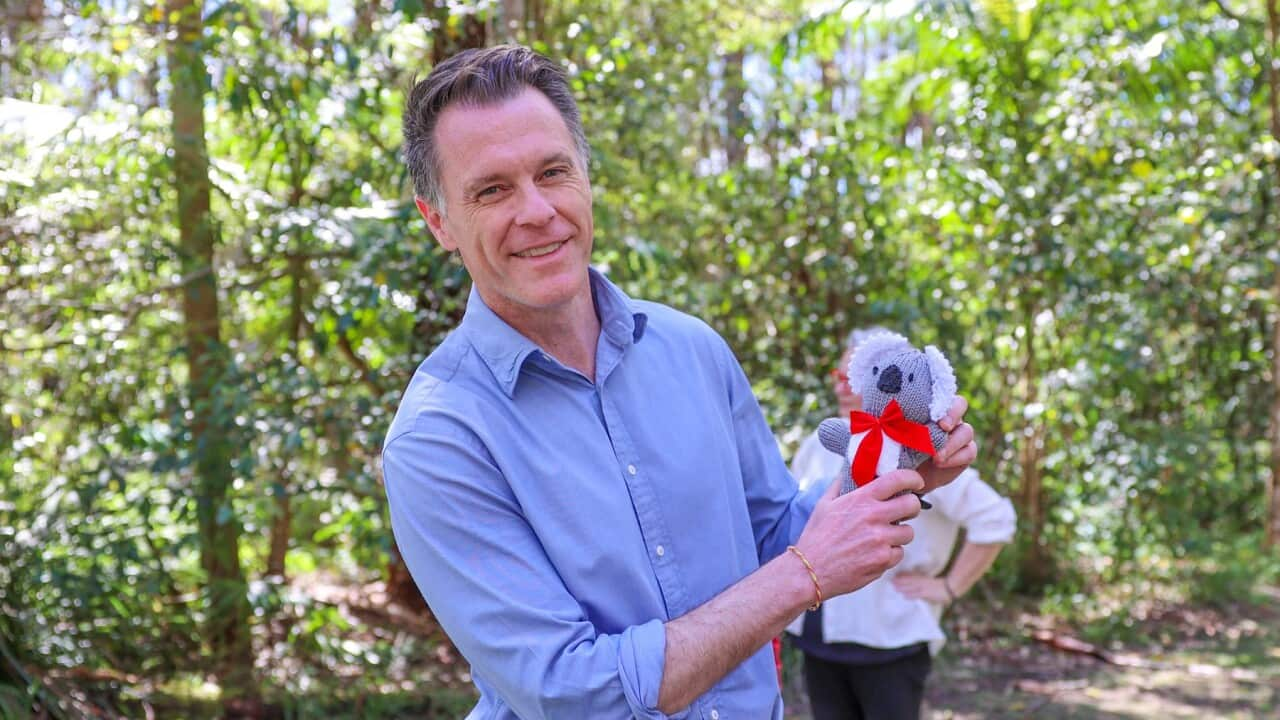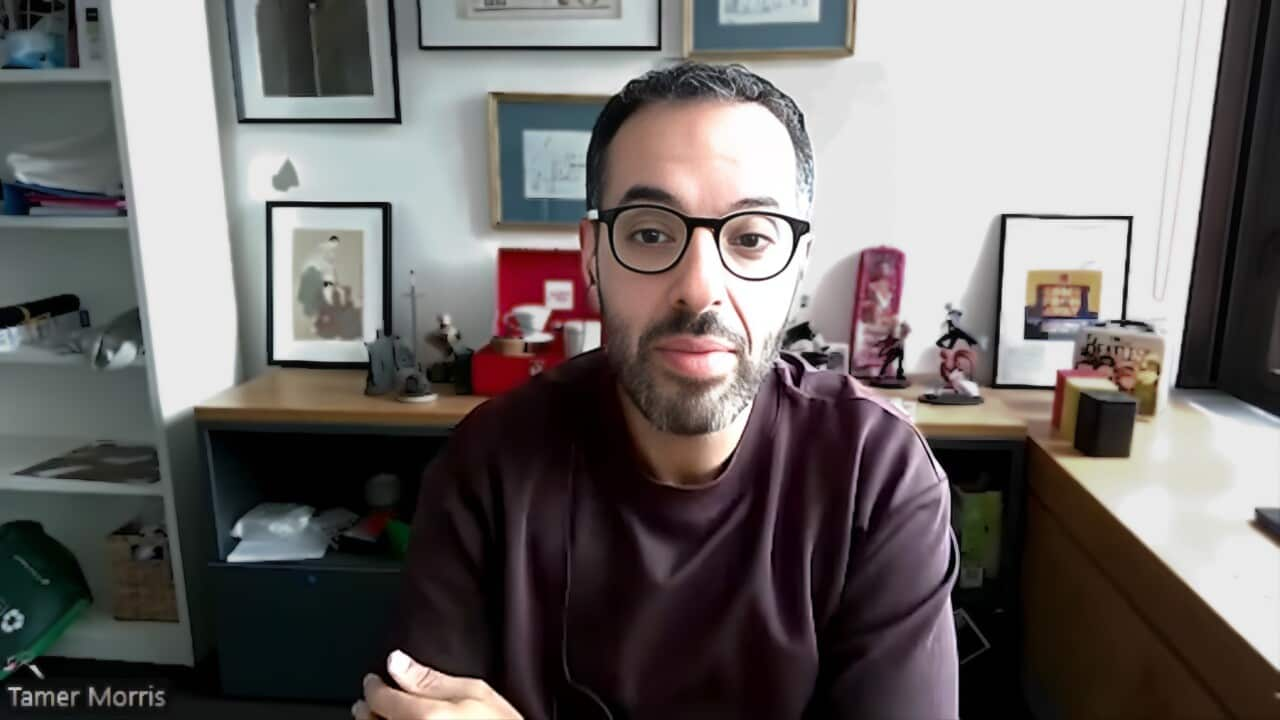Listen to Australian and world news, and follow trending topics with SBS News Podcasts.
TRANSCRIPT
They're one of Australia's most precious and loved species, but research shows that without action, koalas could die off in New South Wales by 2050.
A plan by the state government to create a new protected area called the Great Koala National Park is hoping to change that.
And it has the backing of the World Wildlife Fund Australia Chief Executive Dermot O'Gorman.
"Over the last few decades, we've seen koala numbers drop. The bushfires of 2020 devastated their populations, and so creating a home for more than 10,000 koalas on the mid-north coast of New South Wales as a sanctuary to turn around koala numbers and bring them back into the bush and into communities is a really crucial part of what the Great Koala National Park will achieve. "
300,000 hectares over a number of national parks scattered on the state's Mid North Coast have already been allocated to the Great Koala National Park.
A new announcement by the state government adds 176,000 hectares, to the proposal, linking many of the national parks to create one of the largest in New South Wales.
New South Wales Premier Chris Minns says the park will also help protect the Greater Glider - another endangered marsupial native to the area.
"We can't have a situation where two decades or three decades down the track they're gone from our communities. Future generations ask why - well, the decision needs to be taken today to protect this most important threatened species."
Nature Conservation Council of New South Wales Chief Executive, Jacqui Mumford, shares the Premier's enthusiasm.
"This is one of the most significant conservation outcome that we've seen in years. One in five of NSW koalas will be protected in the National Park and that's without even mentioning the tens of thousands of greater gliders and up to 100 other threatened species of flora and fauna."
But the new park is not without controversy.
The government has already imposed a pause on timber harvesting within the proposed park boundary in anticipation of its soon-to-be protected status.
The timber industry warns the move will wipe $730 million a year from the economy, cause job losses and business closures, and increase the price of power poles and housing materials.
James Jooste is the chief executive of the Australian Forest Product Association, or AFPA.
He says the industry body suggested a compromise on the size of the park during consultation, but was ignored by the government.
"We said, you can have both, you can deliver your election commitment for a Great Koala National Park and also have a sustainable timber industry on the other side of this. Those two options were ignored by the New South Wales Government, and they've gone for the largest possible park, meaning that the timber industry on the north coast will be gutted by this - that is the largest most productive area for public hardwoods on mainland Australia."
Mr Minns says the decision was difficult and carefully considered.
"It was a real temptation to take a compromise in relation to the size of the park, to protect more industry and narrow and shrink the size of the Great Koala National Park. In the end, my colleagues and I, we made a decision that that would be the worst of all worlds - that there would be an economic impact on the industry, but we wouldn't be solving the reason for the Great Koala National Park, and that is so that there can be long term preservation."
The logging shutdown will affect six out of some 25 timber mills in the region and cost approximately 300 jobs.
The government says it plans to cover workers' salaries through a Jobseeker-style payment, offer counselling and training, and provide financial assistance to affected businesses.
A $6 million dollar package will also support new opportunities for tourism and small business on the mid-north coast.
That's on top of $140 million already announced for the establishment of the park.
James Jooste from AFPA says that's not nearly enough.
"The funding announced today is a fraction of the cost for a decision of this size. The timber industry has put the figure for this 176,000 hectare park at $1.3 billion to taxpayers. That cost is immense, and it will be felt not just in the day after tomorrow, but in the months, weeks and years to come as well."
The New South Wales Minister for the North Coast, Janelle Saffin, is touting the benefits of the park to the local economy.
"The great koala National Park also will provide an economic boon for locals and businesses alike. It will become a great tourist park, the Great Koala National Park, just like the panda parks in China, this will be our iconic park, not only in the north coast, but in Australia."
For her colleague, the Environment Minister Penny Sharpe, the creation of the conservation zone is a vision for the future.
"We don't want to be the case where our grandkids can only see them in zoos. This is why this decision is so important. It's important for today. But it is also really important for tomorrow."













